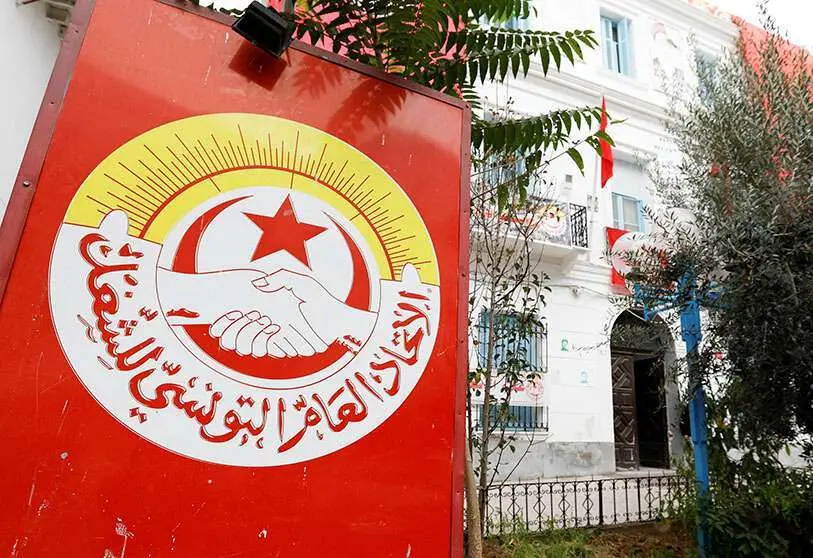General strike in Tunisia paralyses the functioning of the state

A general strike began in Tunisia at midnight on Thursday and will end in the early hours of Saturday to protest against the decision of Najla Bouden's government not to increase public salaries. The mobilisation, organised by the General Union of Workers (UGTT), the main Tunisian trade union, has been supported by almost all workers belonging to the 160 state bodies with the aim of putting pressure on President Kais Saied, who is involved in a constitutional change that many have denounced for its authoritarian drift.
The secretary general of the UGTT, Samir Tahri, told Efe news agency that the general strike was a "success". Until now, Tunisia's largest trade union had been one of the great allies of President Kais Saied in his efforts to amend the 2014 Constitution and reform institutions. The 64-year-old jurist decided in July to dismiss the government, dissolve parliament and arrogate to himself full powers under a controversial interpretation of Article 80 of the constitution. Since then he has ruled by decree and without restraint with the acquiescence of, among others, the UGTT.
The surprise appointment in October of the geologist Najla Bouden, a manager with no previous government experience, as prime minister initiated a new phase in the North African country. Bouden became the first woman to head a government in the Arab world. But, like her predecessors in office, she has had to deal with the dialogue with workers for a wage increase demanded by the organisations since the 2011 revolution that overthrew the dictator Ben Ali and, ultimately, started the phenomenon of the Arab Spring.
Last week, the prime minister presented an ambitious programme of socio-economic reforms, but which did not include a salary increase, but rather a limitation of the salary mass that can be assumed by the state, estimated at just over half a million civil servants. The package also includes a review of subsidies for basic necessities and fuel, according to Efe.

"The question [of the strike] is whether it will succeed in shocking the government and convince it to return to the negotiating table, that depends on its conscience and sense of responsibility", otherwise "we will carry out other movements in both the public and private sectors", explained the spokesman in statements picked up by Efe shortly before a demonstration in front of the capital's headquarters, which brought together a hundred people in the vicinity.
The union maintains that it is not a political mobilisation, but a social one, and that they are not seeking to exert pressure on the president. However, the UGTT refused to participate last week in the so-called national dialogue launched by Saied to draft the new Magna Carta because it excluded the main Tunisian political parties.
Air, land and sea transport in Tunisia has been suspended across the country on Thursday, among other public services. Only health, education and municipalities have remained operational in minimum services in a general strike that follows the last one, organised in 2019, whose demands are maintained three years later and which coincides with the negotiations between the Executive with the International Monetary Fund (IMF) for the financing of a new package of measures.








